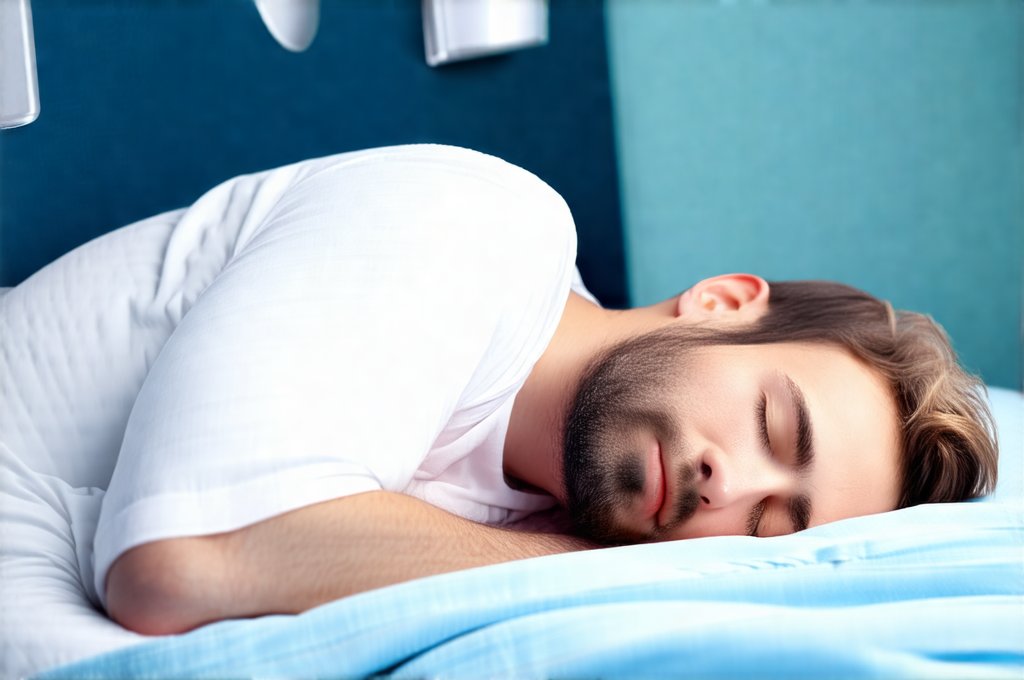Nocturia, the frequent need to wake up and urinate during the night, is a common complaint that significantly disrupts sleep quality and daytime functioning for millions. It’s often dismissed as simply “getting older,” but it can stem from a variety of underlying causes – ranging from lifestyle factors like excessive fluid intake before bed or caffeine consumption, to more serious medical conditions such as diabetes, heart failure, or an overactive bladder. While many focus on reducing evening fluids, a growing body of research suggests that when we sleep, and how our sleep architecture aligns with hormonal regulation of urine production, plays a surprisingly important role in the frequency of nighttime urination. This exploration delves into the potential for modifying sleep schedules as a non-pharmacological approach to managing nocturia, examining the science behind it, practical strategies for implementation, and what individuals should consider before making changes to their sleep routines.
The connection between sleep and urinary function is deeply intertwined with our body’s natural circadian rhythms. During the day, vasopressin – often called anti-diuretic hormone (ADH) – secretion is higher, reducing urine production and allowing us to retain fluids. As we approach bedtime, ADH levels naturally rise further, ensuring a more concentrated urine output and less nocturnal urination. However, in many people with nocturia, this nighttime surge of ADH is diminished or absent. This can be due to various factors including age-related changes, underlying medical conditions affecting hormone regulation, or even disrupted sleep patterns themselves. If you’re waking up frequently throughout the night, your sleep becomes fragmented and less restorative, which further exacerbates hormonal imbalances and creates a vicious cycle of increased urination and impaired sleep. Addressing this imbalance through strategic sleep schedule adjustments can potentially restore some natural regulatory mechanisms and reduce the burden of nocturia.
Understanding the Sleep-Nocturia Connection
The relationship between sleep architecture and nighttime urination isn’t merely coincidental. Our bodies don’t just “shut down” when we sleep; instead, they cycle through distinct stages – light sleep, deep sleep (slow-wave sleep), and REM sleep – each playing a crucial role in physical restoration, cognitive processing, and hormonal regulation. Deep sleep is particularly important for ADH release. When sleep is disrupted or insufficient, the time spent in deep sleep diminishes, leading to reduced ADH secretion and consequently, increased urine production overnight. This explains why individuals experiencing chronic sleep deprivation are more prone to nocturia. Furthermore, fragmented sleep patterns – characterized by frequent awakenings – prevent the body from fully entering these restorative stages, hindering hormonal balance and exacerbating urinary symptoms. If you’re struggling with recurrent UTIs, it’s important to understand can physical therapy help UTI-prone women as well.
- Studies have shown a strong correlation between sleep fragmentation and increased nighttime urine volume.
- Individuals with Obstructive Sleep Apnea (OSA), which causes repeated interruptions in breathing during sleep, often experience higher rates of nocturia due to both sleep disruption and altered hormonal regulation.
- The timing of urination also matters. If the majority of urination occurs during REM sleep, it’s less likely to wake someone up compared to urination during lighter stages of sleep.
Therefore, optimizing sleep isn’t just about getting enough hours; it’s about improving the quality of sleep and ensuring that your body is effectively cycling through these crucial restorative phases. This can be achieved in part by addressing underlying sleep disorders (like OSA) but also by strategically adjusting sleep schedules to align with natural circadian rhythms and maximize ADH secretion. A consistent, well-timed sleep schedule allows the body to anticipate hormonal changes and optimize urine production accordingly, potentially reducing nighttime awakenings and improving overall sleep quality. If you are having trouble sleeping, it’s important to consider can poor sleep cause bladder instability
Strategies for Sleep Schedule Modification
Modifying your sleep schedule isn’t about drastically changing when you go to bed; it’s often about optimizing consistency and timing within existing routines. The goal is to reinforce the body’s natural circadian rhythm and promote a more robust ADH surge during nighttime hours. One key strategy is chronotherapy, which involves gradually adjusting bedtime and wake-up times in small increments to align with your internal clock. This approach, typically guided by a healthcare professional, can be particularly helpful for individuals whose sleep schedules have become erratic due to shift work or other disruptions. Another effective technique is establishing a regular “sleep window” – a consistent block of time dedicated to sleep each night, even on weekends.
- Consistency is paramount: Even small variations in bedtime and wake-up times can disrupt the circadian rhythm and negate any potential benefits.
- Light exposure: Strategic light exposure (bright morning sunlight) helps reinforce the circadian rhythm and promotes daytime alertness while minimizing evening blue light exposure to facilitate melatonin production.
- Evening routines: Establish a relaxing pre-sleep routine to signal your body that it’s time to wind down, including activities like reading, taking a warm bath, or listening to calming music.
It’s important to note that sleep schedule modifications are most effective when combined with other lifestyle adjustments, such as limiting fluid intake before bed, avoiding caffeine and alcohol in the evening, and addressing any underlying medical conditions contributing to nocturia. Furthermore, it may take several weeks for the body to adjust to a new sleep schedule, so patience and consistency are essential. If you’ve recently recovered from a bladder infection, knowing how to help your bladder recover from infection can be very beneficial during this time.
The Role of Melatonin
Melatonin is a hormone naturally produced by the pineal gland that plays a crucial role in regulating the sleep-wake cycle. Its production increases in the evening as darkness descends, signaling to the body that it’s time to prepare for sleep. Disruptions to melatonin levels can contribute to sleep disturbances and exacerbate nocturia. Supplementing with melatonin is sometimes proposed as a way to improve sleep quality; however, its effectiveness varies greatly between individuals, and it’s important to consult with a healthcare professional before using any supplements.
- Light exposure influences melatonin: Exposure to blue light from electronic devices suppresses melatonin production, making it harder to fall asleep.
- Age & Melatonin: Melatonin production naturally declines with age, which may contribute to the increased prevalence of nocturia in older adults.
- Timing is key: If considering melatonin supplementation, taking it a few hours before bedtime can help synchronize your internal clock and promote better sleep.
However, simply taking melatonin won’t solve all sleep problems. It’s most effective when combined with other healthy sleep habits and addressing any underlying causes of sleep disruption. A more sustainable approach is to optimize environmental factors that support natural melatonin production, such as creating a dark, quiet, and cool sleep environment and minimizing exposure to blue light in the evening.
Addressing Sleep Disorders
Nocturia can often be intertwined with underlying sleep disorders like Obstructive Sleep Apnea (OSA) or Restless Legs Syndrome (RLS). OSA, characterized by repeated pauses in breathing during sleep, leads to fragmented sleep, reduced ADH secretion, and increased urine production. RLS, which causes an irresistible urge to move the legs, can also disrupt sleep and contribute to nocturia. Diagnosing and treating these underlying conditions is crucial for effectively managing nighttime urination.
- Sleep studies: A polysomnography (sleep study) can help diagnose OSA and identify other sleep disorders.
- Treatment options: Treatment for OSA may include continuous positive airway pressure (CPAP) therapy, while treatment for RLS may involve medication or lifestyle changes.
- Integrated approach: Addressing both the sleep disorder and nocturia simultaneously is often more effective than treating them separately.
It’s important to seek professional help if you suspect you have a sleep disorder, as early diagnosis and intervention can significantly improve your sleep quality and reduce the severity of nocturia. Self-treating or ignoring these conditions can lead to further health complications and exacerbate urinary symptoms.
The Importance of Professional Evaluation
While modifying your sleep schedule and lifestyle habits can be helpful for managing mild cases of nocturia, it’s crucial to consult with a healthcare professional to rule out any underlying medical conditions. A thorough evaluation may involve:
- Medical history review: Assessing your overall health, medications, and family history of urinary problems.
- Physical examination: Checking for signs of prostate enlargement (in men), pelvic organ prolapse (in women), or other relevant conditions.
- Urine analysis: Evaluating kidney function and identifying any infections or abnormalities in the urine.
- Bladder diary: Tracking your fluid intake, urination patterns, and nocturia episodes to help identify potential triggers and assess the severity of your symptoms.
Based on the evaluation findings, your healthcare provider can recommend the most appropriate course of action, which may include lifestyle modifications, medication, or referral to a specialist (such as a urologist). Remember that self-treating nocturia without addressing underlying causes can be detrimental to your health and well-being. A professional evaluation is essential for ensuring accurate diagnosis and personalized treatment. If you are experiencing mood changes alongside urinary issues, it’s helpful to understand if can UTIs affect mood and sleep in females.





















